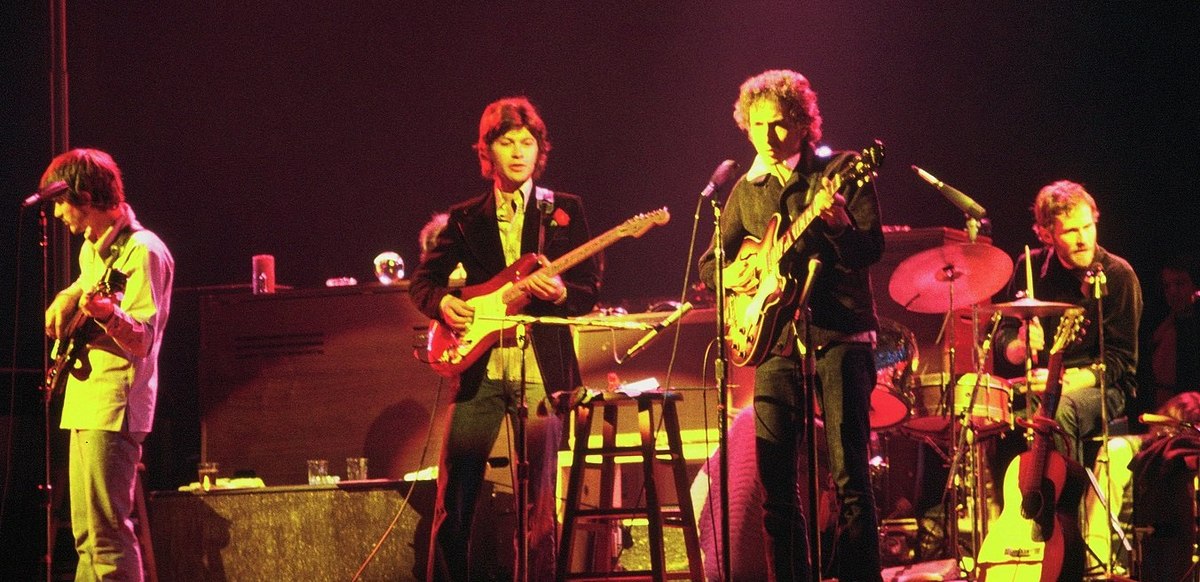
What do Britons think of Bob Dylan's singing voice - and do they prefer it when he "goes electric"?
Over a 60-year career, Bob Dylan has been a protest singer, a rock star, a born-again Christian, a Travelling Wilbury, a country crooner, a Sinatra tribute act, a Nobel Laureate, and more. As he sang on 2020’s Rough and Rowdy Ways, he contains multitudes.
But while celebrated for his lyricism and his enduring influence, he has also cut an elusive and occasionally abrasive figure – variously receiving backlash for his singing voice, his use of electric instruments, his musicianship, and his public persona.
Ahead of the UK release of A Complete Unknown, a new biopic focused on the early years of his career, what do the public actually think of Bob Dylan? The answer, my friends, is…ah, forget it.
By 40% to 9%, Britons like Bob Dylan’s music
Firstly, Dylan’s music is considerably more appreciated than not. Two in five Britons said they enjoy his work (40%), next to 9% who say they dislike or hate it. Along age lines, men are more likely to be fans (45%) than women (35%).
As an artist whose first album came out in 1962, it’s perhaps understandable that he’s most popular among over 55s, half of whom have a good opinion of him (50%). But Dylan fandom doesn’t strictly correlate with being older. Britons aged 18-24 (38%) are actually about as (if not slightly more) likely to enjoy his work than those aged 25-34 (33%), 35-44 (31%), or 45-54 (35%).
As for A Complete Unknown, one in three (34%) express interest in seeing James Mangold’s film – rising to two-thirds of Dylan fans (65%).
Britons prefer it when Dylan “goes acoustic”
Since the new film covers the controversy over Dylan “going electric” in 1965-66 – and since Britain was where a concertgoer infamously yelled “Judas” at him for playing with a rock band – we also asked the public whether they prefer his acoustic or electric work.
Among those who have heard of the singer-songwriter, a third (32%) said they favoured guitar-and-harmonica tunes such as “Blowin’ in the Wind” or “The Times They Are a-Changin’” over the more rock-influenced sounds of “Like a Rolling Stone” or “Subterranean Homesick Blues” – which just 7% like better. The split among die-hard Dylan fans (here defined as those who said they “love” his music) is similar, although they favour the acoustic material slightly more (43% vs. 8%).
And since we're making (possibly-doomed) attempts to settle near-60-year-old debates, we also asked the public what they think of Dylan’s distinctive voice. Leonard Cohen described him as a “more sophisticated singer than Whitney Houston”, David Bowie (in what was apparently a compliment) said he had a voice made of “sand and glue”, and folk icon Joan Baez – also his ex-girlfriend – said he was akin to “a dog with his leg caught in barbed wire.”
Dylan himself bristled at criticisms of his voice in a lengthy 2015 speech, but half of the British public (49%) think he’s a good singer, and just 15% dislike the way he sounds. A quarter (26%) won’t be drawn either way.
Make smarter business decisions with better intelligence. Understand exactly what your audience is thinking by leveraging our panel of 26 million+ members. Speak with us today.
Methodology
YouGov polled 2,004 British adults online on 9 January 2025. The survey was carried out through YouGov Surveys: Self-serve. Data is weighted by age, gender, education level, region, and social grade. The margin of error is 2% for the overall sample. Learn more about YouGov Surveys: Self-serve.
Image: Bob Dylan and The Band, 1974. Author: Jim Summaria. Licensed under Creative Commons.